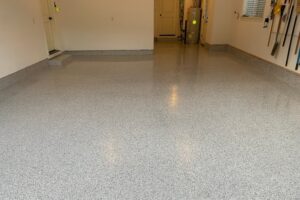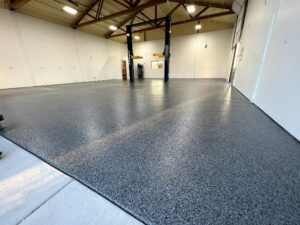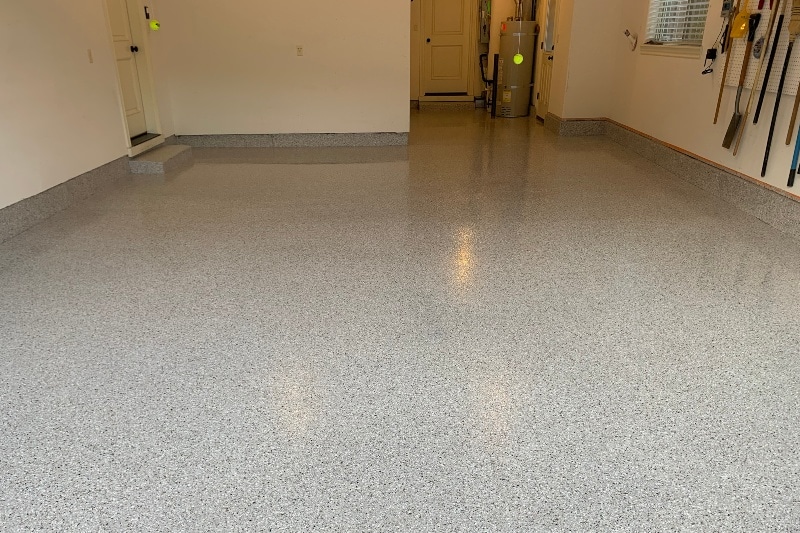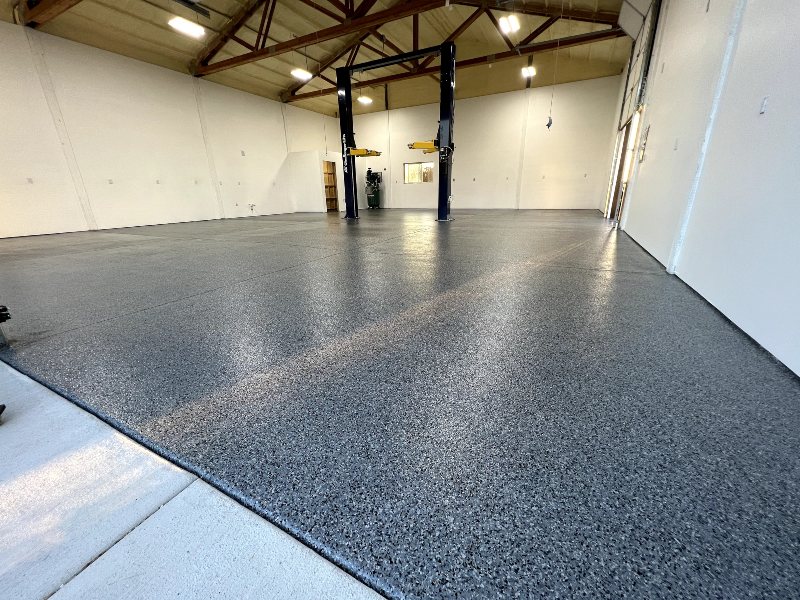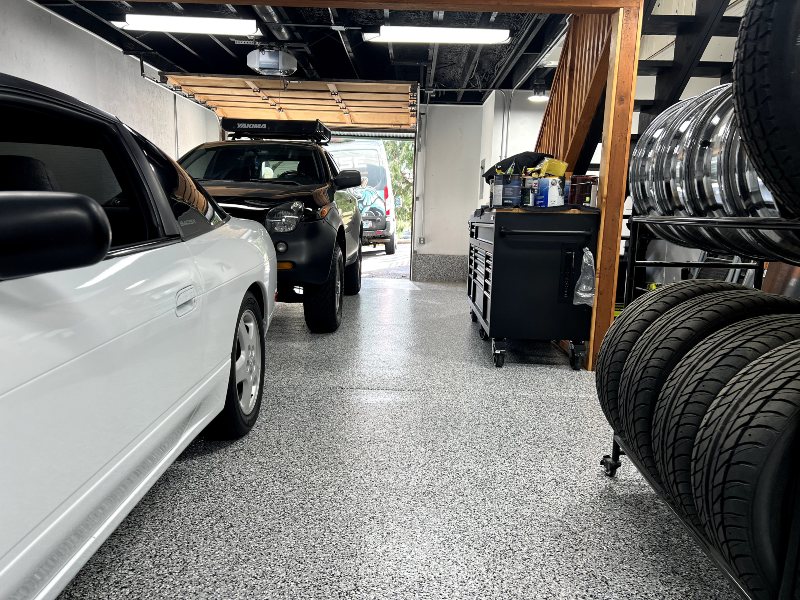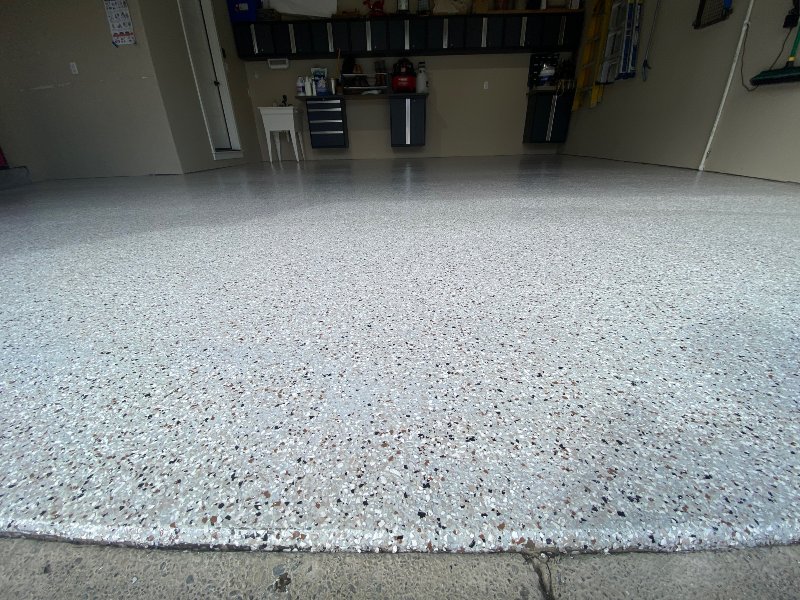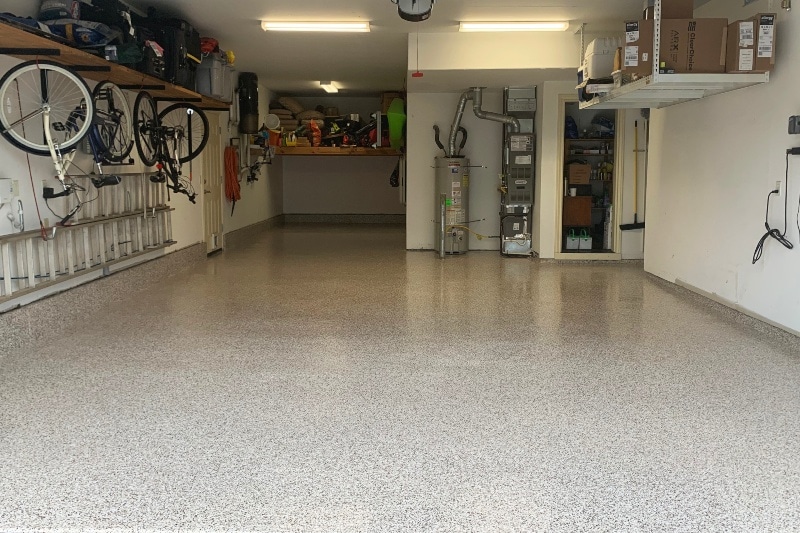Protecting Your Concrete Floors with the Best Concrete Coatings – A Comprehensive Guide
Upgrade your space with durable and affordable concrete floors. But over time, wear and tear can take a toll, leading to expensive repairs. Don’t worry – the solution is here. Discover the benefits of top-notch concrete coatings in this ultimate guide. Dive into the different types of coatings available and find the perfect one for your needs. Whether it’s epoxy or polyurethane, we’ll provide expert insight on installation, maintenance, and long-term care. By the end, you’ll have the know-how and tools to protect your floors and revamp your space.
Understanding Concrete Coatings
Concrete coatings are essential for preserving the integrity and aesthetics of your floors. They act as a barrier against moisture, stains, and mechanical wear, extending the lifespan of your concrete considerably. When choosing a coating, it’s vital to consider the specific demands of your environment. High-traffic areas might benefit from the robust protection offered by epoxies, while spaces exposed to sunlight may require the UV resistance provided by polyurethanes. Each type of concrete coating comes with its own set of properties to address different challenges, from chemical spills to thermal shock, ensuring you can find the right fit for any situation.
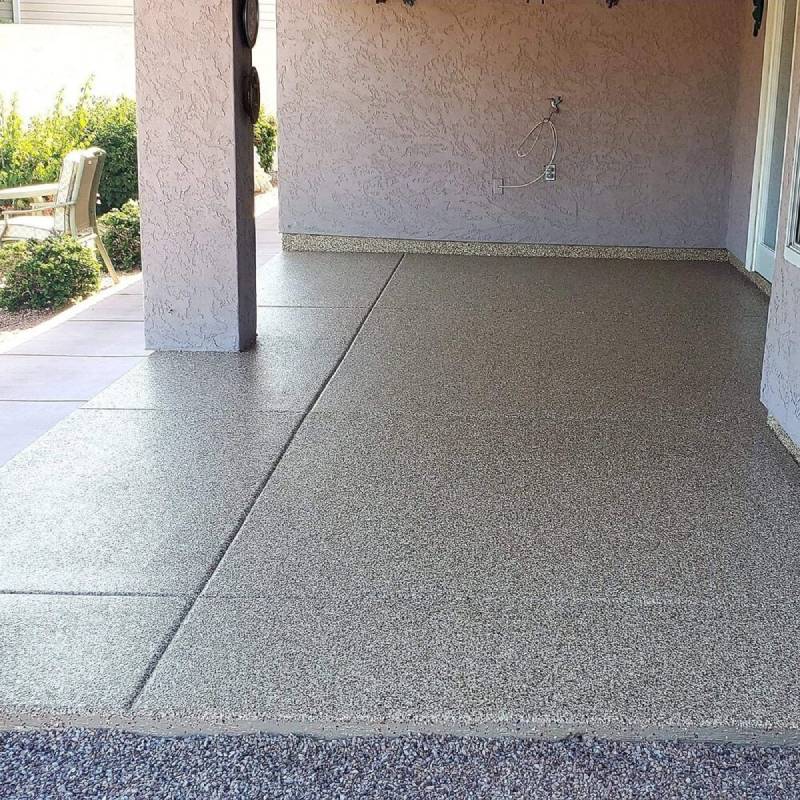
Preparing for Concrete Coating Application
Proper preparation is the bedrock of effective concrete coating application. Before you begin the process, it’s crucial to ensure the surface is clean, dry, and free from any defects or contaminants that could impair adhesion. Start by repairing cracks or damage with a suitable concrete filler. Next, clean the floor thoroughly, removing all dirt, grease, and previous coatings. For optimal results, consider mechanical methods like grinding or shot blasting to achieve a roughened texture that promotes better bonding. Finally, check the moisture levels; too much can lead to coating failure. With these preparatory steps, your concrete floor will be primed and ready for a fresh layer of long-lasting protection.
Application Process for Concrete Coatings
The application of concrete coatings requires precision and attention to detail to ensure durability and performance. Begin by carefully reading and following the manufacturer’s instructions for the selected coating product. Mix the coating materials as directed, often in a two-part system that includes a epoxy resin and a hardener that must be combined immediately before use. Apply the coating systematically, starting from one corner of the room and working your way to an exit to avoid stepping on the wet surface. Use brushes or rollers for smaller areas and a squeegee or sprayer for larger surfaces, ensuring an even, thorough coverage. After the base coat, a second or even a third coat may be necessary, depending on the product specifications and the desired thickness. Allow each layer to cure according to the recommended time frames before exposing the surface to foot traffic or heavy use. With a carefully executed application process, your concrete coating will not only be visually appealing but also provide a long-term defense against daily wear and tear.
Types of Coatings
When navigating the world of concrete floor coatings, it’s crucial to understand the different options at your disposal. The most common types include:
- Epoxy Coatings: Well-known for their durability and resistance to heavy loads, epoxy coatings are perfect for garages, industrial floors, and warehouses. They create a glossy, high-performance surface that is easy to clean and maintain.
- Polyurethane Coatings: These coatings are prized for their ability to resist UV radiation and harsh chemicals, making them an excellent choice for outdoor spaces and facilities that handle corrosive materials.
- Polyaspartic Coatings: As a newer entrant in the market, polyaspartic coatings dry quickly, allowing for a fast return to service. They offer strong resistance to stains and abrasions, and unlike epoxies, they can be applied in a wide range of temperatures.
- Acrylic Sealers: For those seeking a cost-effective and fast-drying option, acrylic sealers offer a decent level of protection against dirt, moisture, and staining, albeit with less durability compared to other coatings.
- Cementitious Urethane: This type of coating is ideal for environments that experience extreme temperatures or thermal cycling, such as food processing plants. Its thermal expansion coefficient is similar to that of concrete, which reduces the likelihood of cracking.
Each coating type comes with its unique benefits and application techniques. The choice you make will depend on the specific requirements of your environment and the level of protection you need for your concrete floors.
Maintaining Your Concrete Coating
Maintaining the pristine condition of your concrete coating is integral to preserving its appearance and structural integrity over time. Regular maintenance not only prolongs the coating’s life but also prevents costly reapplications. For daily upkeep, sweep the surface to remove debris and clean spills promptly to avoid stains. Perform weekly cleanings with a pH-neutral cleaner and scrub gently with a soft brush or auto-scrubber for larger surfaces. Avoid harsh chemicals that can degrade the coating. For epoxy and polyurethane coatings, a topcoat reapplication every few years can rejuvenate the surface and reinstate its protective qualities. Additionally, inspect the floor periodically for any signs of wear or damage, addressing minor issues before they escalate. Adhering to a consistent maintenance routine will keep your floor coating in excellent condition, ensuring it continues to protect your concrete floor as intended.
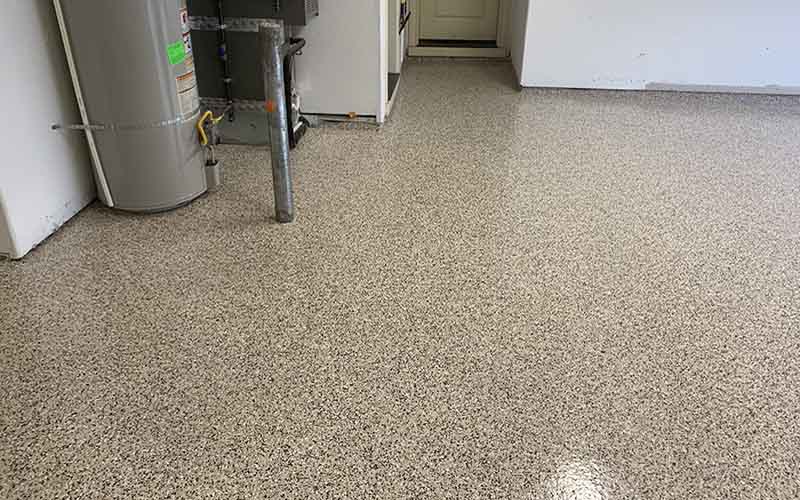
Choose Wisely: DIY or Professional Application
When considering the application of concrete coatings, it’s important to weigh the option of a do-it-yourself (DIY) approach against hiring a professional coating company. A DIY project may be cost-effective for those with experience in home improvement and access to the necessary tools. However, the application of concrete coatings requires a level of precision that might be beyond the scope of a typical DIY task. Professionals bring expertise, proper equipment, and a guarantee of quality, ensuring that the job meets industry standards. They can also help navigate the complexities of choosing the right type of coating for your specific needs and environment. Ultimately, deciding between a DIY project and professional services depends on your budget, skill level, and the importance of long-term results. It’s a choice that should be made with careful consideration and a realistic assessment of the project’s demands.
In conclusion, concrete coatings serve as an invaluable investment for the protection and longevity of concrete surfaces. From preparation to application, choice of coating type, and ongoing maintenance, each step plays a pivotal role in garnering superior results. The spectrum of coatings—ranging from epoxy to acrylic—provides options for every need and environment, each with its distinct advantages. While the DIY route may appear tempting for those who are handy, the complexities involved with coating applications often call for the specialized skills of professionals. By selecting the right approach and maintaining the integrity of the applied coating, you can ensure both aesthetic and functional enhancement of your concrete spaces for years to come.


